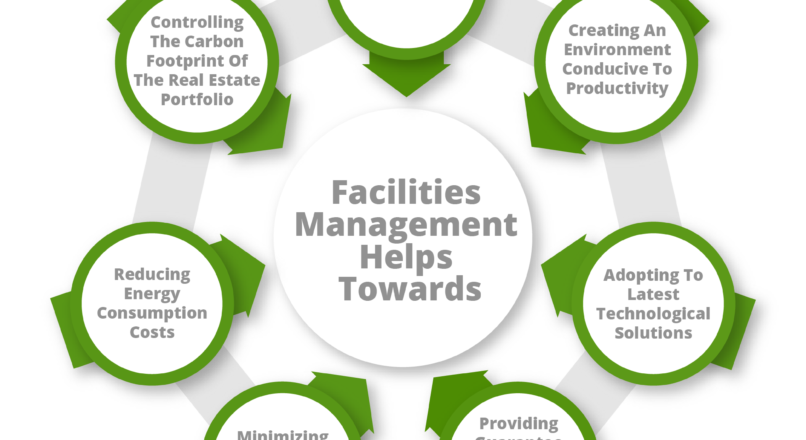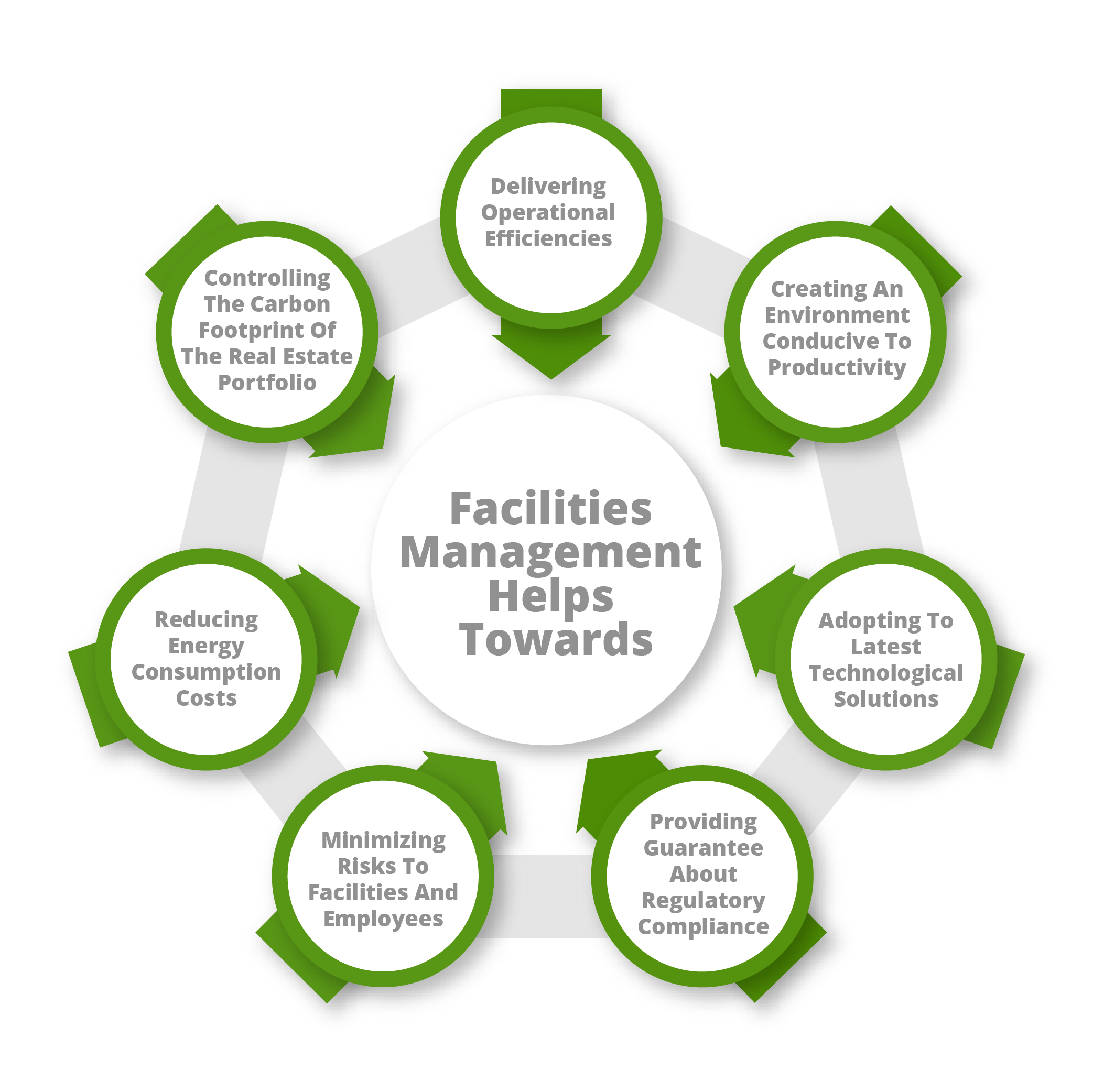
Top 4 Facilities Management Capabilities, a Must-Have for the Future Workplaces
Top 4 Facilities Management Capabilities, a Must-Have for the Future Workplaces
The last two years have defied all possible workplace conventions. With businesses across the world grappling to overcome disruptions of colossal proportions, a lot of lessons are being consequently learned about emerging from this time of crisis. Everyday routines, business functions/operations, and employee communication methods have changed drastically. Considering these factors, it wouldn’t be an understatement to say that this pandemic will continue to restructure our living and working ecosystems.
With these changes, the conventional ways of handling workspaces and operations have begun to demand a revisit. In the current scenario, managing physical facilities need diligent reconsideration to enable them to adapt to the broader needs of the future. This will need to include well-thought approaches and best practices.
One such approach is the transformation of the facilities management while being a part of an Integrated Workplace Management System (IWMS). Reviving the facilities management arena will help in bringing together the people, process, and technology. Facilities management not just limits to the seamless management of physical spaces but will also help adhere to safety protocols and deliver a hassle-free working experience in the post pandemic scenario.
What Are the Capabilities of Facilities Management?

Why Will Facilities Management Become All the More Important?
Facilities management is a set of tools and services that back functionality, safety, and sustainability of physical workspaces.
This includes:
- Lease management encompassing lease administration and accounting
- Capital project planning and management
- Maintenance and operations
- Energy management
- Occupancy and space management
- Employee and occupant experience
- Emergency management and business continuity
- Real estate management
A state-of-the-art facilities management will contribute towards positively impacting the short- and long-term value of the property, buildings, and equipment. This capability facilitates maintaining a safe, comfortable, productive, and sustainable workplace for the employees, a pre-requisite post-pandemic.
Facilities management will also play an important role towards:
- Effective Space optimization
- Guiding capital projects
- Energy management and maintenance
- Lease accounting
- Delivering improved Workplace experience
Facilities management coupled with data analytics and Artificial Intelligence can support the utilization of business-critical data. This data-driven approach will help deliver cognitive capabilities thereby providing real-time visibility, predictive facilities maintenance, contributing towards a productive and cost-efficient environment.
What Would Be the Facilities Management Capabilities in Demand?
According to a report by CBRE, facilities management is transforming from an asset or facility-centric capability to one that focuses more on the comfort and safety of the end-users along with improved business outcomes.
Having said that, let’s now take a deep dive into the capabilities of facilities management that would be in demand in the future.
1. Increased Inclination Towards Data-Driven Facility Management
The need of the hour is to make critical business decisions based on evidence and intuitive insights. This will help optimize daily operations from creating a floor plan, appropriately allocating assets to improving overall organizational visibility.
Data-driven facilities management will help generate useful reports to stay on top of real-time inventory/stock/assets. This will control unnecessary costs. Furthermore, this next-gen way of facilities management will improve accountability, ensure the safety of facilities, track changes in facility management plans along with their adherence to compliance.
2. Seamless Management of Facilities Holistically
Typically, workspaces with a broader real estate portfolio tend to maintain data in silos. Though IWMS aims to break through these silos, the facilities management in future will focus more on gathering critical information from varying sources and deriving intuitive insights from them. This will help identify inefficiencies and give room for improvements.
With flexible workspaces on the rise, the overall differences in the allocation of workspaces, systems, and software need to be controlled effectively. Facilities management will enable a holistic view of occupied/vacant workspaces and equipment that will aim to think of the whole company as being headed under a single roof.
Yet another usage of facilities management will be the truncation of the technology stack. This will help oversee business processes and normalize it across different facilities. By doing this, the total number of unused software licenses can be reduced and employees will be able to better understand the workflows across the company.
3. Improved Sustainability Initiatives
Organizations have begun to extensively track and understand their carbon footprint and usage. Software solutions that can support supervisors/facilities managers to have a track on the heating, cooling, and waste management efforts play an important role in implementing these sustainability initiatives.
The facilities management capability as a part of the Integrated Workplace Management System (IWMS) can help proactively identify anomalies. It can also help set predefined thresholds for alerts, closely monitor and look out for unusual spikes in energy consumption, and visually comprehend the costs that go into energy consumption at a glance.
With all these capabilities on an integrated platform, it becomes easier to generate comprehensive reports, forecast expenses, and work on creating energy-saving measures.
4. Integrated Support Towards Mobile Applications
With the rise in remote work, the need and usage of mobile applications have increased. Mobile applications or mobile-friendly software solutions do not demand the employees to stay glued to their work desks. Employees can access and amend work-related records in real-time from anywhere.
Furthermore, with several companies asking their employees to work in a hybrid model, these mobile applications can help them in wayfinding. That is, employees can easily locate unoccupied seats to work, reserve conference rooms, or locate equipment and fix appointments with colleagues in real-time.
To add on, these mobile-friendly solutions enable updating inventory or details about scheduled maintenance in real-time. This ensures that the data is accurate. Employees can also use them to submit work-related requests and the supervisors can view/approve these requests from their devices. This makes sure that stakeholders have a hold on critical information at their fingertips.
Wrap Up
Running a business in this post-pandemic scenario may need several changes to the conventional way of operations. Facilities management can back companies in coping with these changes. Hopefully, this read will provide a sneak peek into a few must-have capabilities of facilities management that will be in demand.
About Quantum Strides
Quantum Strides is the frontrunner and connoisseur in the IWMS implementation, upgrade, performance tuning and enhancements, and the support arena.
We are experts in decoding complexities and offering the most simplified solutions best suitable for your organization. To add on, we specialize in delivering Integrated Workplace Management solutions empowered by IBM TRIRIGA and Nuvolo.
To know more about our offerings and solutions, feel free to check out our website and reach out to us for further clarifications. You may also drop us an email at [email protected]

Leave a reply